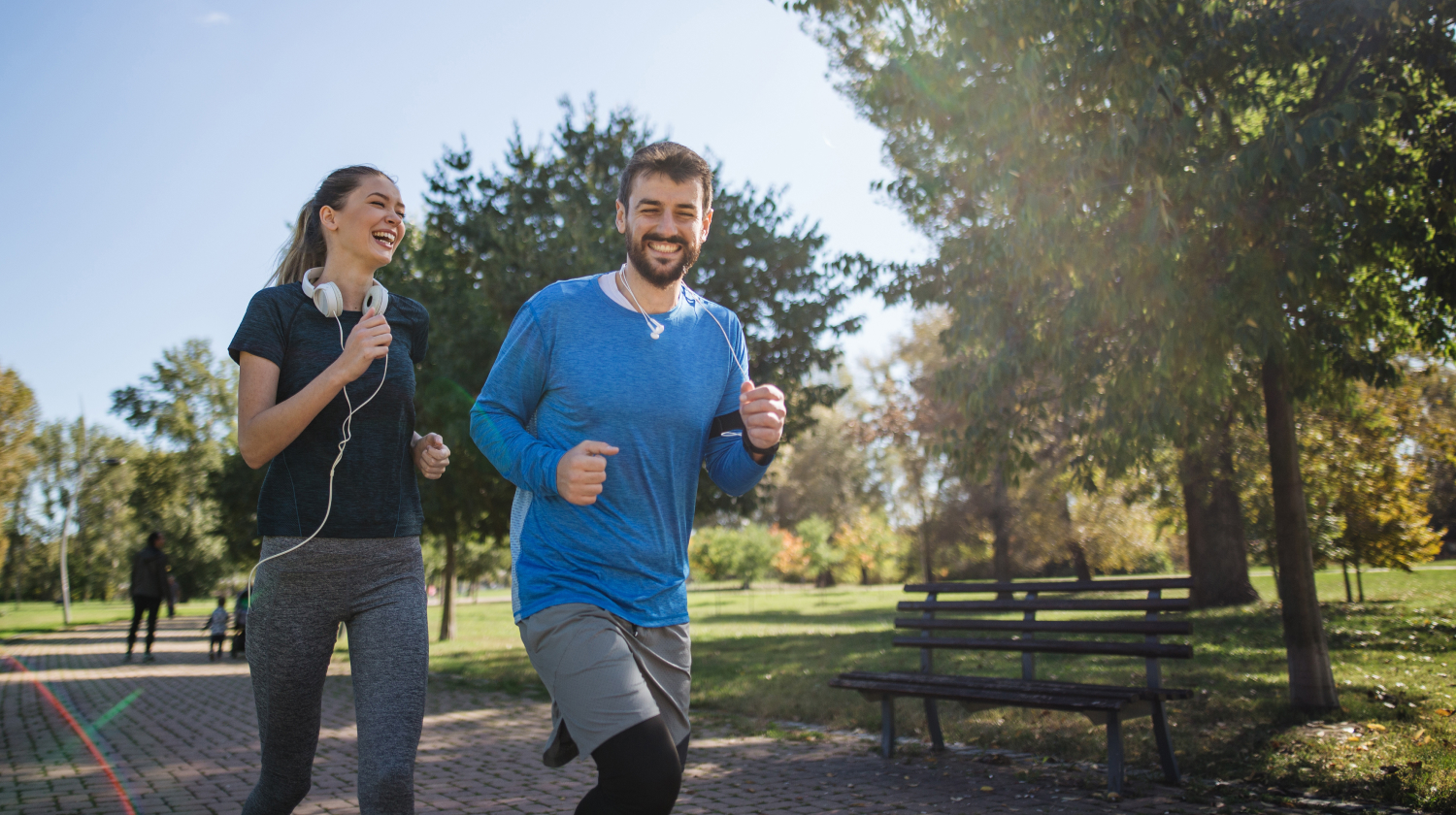Free Floating Anxiety: Definition, Symptoms, Causes & Treatment 2024

You’re in bed after a long day, trying to fall asleep, and out of nowhere, bam — a rush of adrenaline and fear shoot through you. Your eyes pop wide open, your breath catches, and you’re sitting there wondering where on earth it came from.
Maybe you just forgot to do something on your never-ending to-do list, or maybe you’re already thinking about everything that has to get done tomorrow, but either way — it’s not healthy, and it could be a sign of a deeper issue.
While bouts of free-floating anxiety might seem harmless and normal, after all, who doesn’t get anxious now and then? However, random symptoms need addressing. Read on to find out what’s causing your anxiety and how to treat it.
What Is Free-Floating Anxiety?
Free-floating anxiety happens when unexplainable feelings of anxiety randomly pop up. You can’t pinpoint it to any specific trigger, but the sensations are there. It’s often a symptom of generalized anxiety disorder or GAD[1] — a clinical disorder where you feel an excessive amount of fear and worry that interferes with your daily life.
Currently, free-floating anxiety isn’t a clinical term or used to diagnose a distinct mental disorder recognized in the diagnostic and statistical manual of mental disorders. Experiencing some type of floating sensation anxiety also doesn’t mean you have an anxiety disorder. It might be that you’re going through a hard time in life, full of change and pressure, and this is your body’s way of responding to stress. Fortunately, it’s something you can work on and heal from.
Symptoms Of Free-Floating Anxiety
You can experience free-floating anxiety in varying ways, but these are some of the most common emotional and physical symptoms to watch out for:
- Restlessness.
- Nervousness.
- Discomfort.
- Concern.
- Stress.
- Jitters.
- Dread.
- Worry.
- Panic.
- Fear.
These sensations may come and go depending on what difficulties you’re facing at the time. If they persist, however, it may be a sign of GAD. This anxiety disorder[2] is also characterized by:
- Fatigue.
- Muscle tension.
- Digestive issues.
- Trouble sleeping.
- Frequent restlessness.
- Inability to concentrate.
- Difficulty making decisions.
- Excessive fear or worry about everyday things.
Causes
There is a multitude of reasons random anxiety symptoms appear, with these being the most common:
Your Upbringing
Children raised with emotionally immature or unavailable parents are more likely to suffer from mood disorders.[3] When parents don’t offer empathy, understanding, and validation to their children’s emotions, emotional maturation is stunted.
Children aren’t able to regulate their own emotions and depend on their parents’ nervous systems to calm down after an upsetting emotion. If parents themselves also grew up with emotionally immature parents and received poor emotional support, they will likely unknowingly continue that pattern. This is a form of generational trauma[4] where parents still have emotional handicaps from their unmet childhood needs and pass their trauma on to their children.
Those with unresolved issues and difficulty expressing and communicating their needs and emotions usually can’t provide their offspring with healthy emotional responses or teach them a better way. Sadly, this leads to many mood disorders, such as a variety of anxiety disorders and depression.
Negative Experiences
Both children and adults who experience overwhelming and difficult life events have a higher likelihood of developing anxiety. These include:
- Financial difficulties.
- Death of someone close.
- Physical or emotional trauma.
- Stressful work or living situation.
Brain Chemistry and Genetics
Your biology affects how likely you are to develop a mood disorder. Some people may have neurotransmitter systems working differently,[5] while others have a unique brain structure more likely[6] to be associated with free-floating anxiety.
Genetics plays a big role in these disorders since blood relatives[7] with anxiety and specific genes[8] increase your susceptibility.
Another unfortunate phenomenon is that women are twice as likely to develop anxiety[9] when compared to men. It’s hypothesized to be due to brain chemistry differences, hormonal fluctuations, a higher likelihood of experiencing abuse, and different coping mechanisms.
Women are also more prone to stress[10] than men and are more likely to ruminate, while men use more problem-focused coping. Sadly, when women develop anxiety, it’s also shown to be more disabling[11] than when compared to men.
Chronic Health Conditions
Dealing with an illness often creates stress from constant worry and lifestyle changes.
Many chronic health conditions[12] are associated with anxiety, such as:
- Diabetes.
- Chronic pain.
- Heart disease.
- Thyroid problems.
- Certain medications.
- Respiratory disorders.
- Other mental health disorders.
- Irritable bowel syndrome or IBS.
- Alcohol or drug misuse or withdrawal.
If you’re dealing with a chronic health issue and experiencing anxiety symptoms, a free support group[13] or therapist can offer invaluable support in helping you learn to cope.
Treatment
With proper treatment, a full recovery[14] from anxiety is possible. As with all things, it takes effort, such as committing to your self-care and going to therapy and support groups[15] regularly. Scheduling an appointment with a therapist either online or in person is well worth the investment. A mental health professional will likely use cognitive behavioral therapy or CBT — the most effective treatment method for healing anxiety.[16]
It’s also important to schedule a check-up with your doctor for a full blood work analysis to ensure there are no underlying medical conditions. Even nutritional deficiencies[17] and sedentary lifestyles[18] can lead to anxiety, so putting your physical health first is essential to help reduce free-floating anxiety.
Dealing With Free-Floating Anxiety
These are some actions you can take upon yourself to manage any sort of free-floating anxiety disorder:
Therapy

While it’s great to also learn techniques on your own, professionals can personalize coping methods that will specifically work for you, offer invaluable emotional support and encouragement, and help you dive deeper into the root issue. This way, rather than just trying to manage your response in a stressful situation, you can discover the hidden beliefs that lead to anxiety in the first place and change them.
Find A Fun Way To Move Your Body

Since sitting most of the day[18] can lead to anxiety, try working on little habits that get you up throughout the day. That could mean downloading an app that reminds you to grab a glass of water or stretch every hour, creating a standing desk, or going for a walk every time you call a friend or family member to catch up. These little things don’t seem like much but have added up; they make a huge difference.
Overall, a total of 150 minutes of activity[19] per week will benefit your mental health. Try new activities that excite you, like a new fitness or dance class online or in person. Think of ways to move that calm you, like a relaxing evening walk after dinner or bedtime yoga.
Add Nutrient-Dense Foods

It’s no secret that processed food is nutritionally empty and affects your gut microbiome[20] negatively. If your gut bacteria are out of balance and you’re not getting enough vitamins or minerals to function at your best, you’re more likely to experience symptoms of anxiety and depression.[21]
Rather than putting pressure on yourself to completely change your diet, choose one small healthy habit change to focus on for the next two weeks. Make it simple, practical, and as easy to do as possible. That could be taking a multivitamin, adding one serving of vegetables to every dinner, or trying an interesting new tea flavor instead of having a second cup of coffee — since caffeine[22] can also create free-floating anxiety symptoms.
Practice Stress-Relieving Activities

Stress rarely goes away on its own. If you’re going through a difficult time or have been experiencing more free-floating anxiety in general, it’s time to set boundaries and put your emotions and rest first. These are some activities[23] you can perform daily, even in small amounts, that have been proven to help reduce anxiety symptoms:
- Journaling.
- Meditating.
- Breathing exercises.
- Going to nature regularly.
- Prioritizing alone or quiet time.
- Mindfulness-based stress reduction programs.
Create A Community Of Support

Coping with mental health struggles is something many of us go through at some point in our lives, but the more we allow people to support us,[24] the more likely we are to get through it quicker. We are social beings, and no matter what, we depend on each other for our general sense of safety and security — which is what many people with anxiety don’t feel.
Symptoms can pop up if you’re lonely[25] or feel you must do it all alone. That’s why it’s important to make friends and socializing a priority — after all, we all need a sense of community and laughter in our lives. You can also put yourself out there to meet new people with similar interests while gaining a new skill or hobby by signing up for a creative class, like photography or painting. Whatever it is, making an effort to spend more time with others will boost your overall sense of happiness.
Summary
While free-floating anxiety might seem to pop up out of nowhere, there’s usually an underlying cause. It could be a medical condition, such as thyroid disease or diabetes, or a moment of big life changes, like a new job or losing a friend. It could also be a sign of an anxiety disorder, where anxious symptoms interfere with your daily life.
If you’re noticing that you’ve been feeling more anxious for a few weeks and it isn’t going away, it’s best to get a medical checkup and contact a therapist for professional help. This way, you’ll be able to get to the root issue more quickly and have an easier time learning coping skills with tailored advice to fit your needs.
Healing from anxiety takes effort, but fortunately, much of it you can do on your own. This includes practicing stress-relieving activities, adding nutrient-dense foods, moving your body in fun ways, and building a community of support. Always remember that if you put in the effort and get professional help, recovery is possible.
+ 25 sources
Health Canal avoids using tertiary references. We have strict sourcing guidelines and rely on peer-reviewed studies, academic researches from medical associations and institutions. To ensure the accuracy of articles in Health Canal, you can read more about the editorial process here
- NHS Choices (2023). Overview – Generalised anxiety disorder in adults. [online] Available at: https://www.nhs.uk/mental-health/conditions/generalised-anxiety-disorder/overview/
- National Institute of Mental Health (NIMH). (2022). Anxiety Disorders. [online] Available at: https://www.nimh.nih.gov/health/topics/anxiety-disorders
- Apa.org. (2023). APA PsycNet. [online] Available at: https://psycnet.apa.org/record/2001-00558-001?doi=1
- Grand, S. and Salberg, J. (2020). Trans-Generational Transmission of Trauma. Social Trauma – An Interdisciplinary Textbook, [online] pp.209–215. doi:https://doi.org/10.1007/978-3-030-47817-9_22.
- Patriquin, M.A. (2017). The Neurobiological Mechanisms of Generalized Anxiety Disorder and Chronic Stress – Michelle A. Patriquin, Sanjay J. Mathew, 2017. [online] Chronic Stress. Available at: https://journals.sagepub.com/doi/10.1177/2470547017703993
- Wang, M., Cao, L., Li, H., Xiao, H., Ma, Y., Liu, S., Zhu, H., Yuan, M., Qiu, C. and Huang, X. (2021). Dysfunction of Resting-State Functional Connectivity of Amygdala Subregions in Drug-Naïve Patients With Generalized Anxiety Disorder. Frontiers in Psychiatry, [online] 12. doi:https://doi.org/10.3389/fpsyt.2021.758978.
- Davies, M.N., Verdi, S., Burri, A., Trzaskowski, M., Lee, M., Hettema, J.M., Jansen, R., Boomsma, D.I. and Spector, T.D. (2015). Generalised Anxiety Disorder – A Twin Study of Genetic Architecture, Genome-Wide Association and Differential Gene Expression. PLOS ONE, [online] 10(8), p.e0134865. doi:https://doi.org/10.1371/journal.pone.0134865.
- Gottschalk, M.G. and Domschke, K. (2016). Novel developments in genetic and epigenetic mechanisms of anxiety. Current Opinion in Psychiatry, [online] 29(1), pp.32–38. doi:https://doi.org/10.1097/yco.0000000000000219.
- National Institute of Mental Health (NIMH). (2017). Generalized Anxiety Disorder. [online] Available at: https://www.nimh.nih.gov/health/statistics/generalized-anxiety-disorder
- University of Cambridge. (2016). Opinion: Women are far more anxious than men – here’s the science. [online] Available at: https://www.cam.ac.uk/research/discussion/opinion-women-are-far-more-anxious-than-men-heres-the-science
- McLean, C.P., Asnaani, A., Litz, B.T. and Hofmann, S.G. (2011). Gender differences in anxiety disorders: Prevalence, course of illness, comorbidity and burden of illness. Journal of Psychiatric Research, [online] 45(8), pp.1027–1035. doi:https://doi.org/10.1016/j.jpsychires.2011.03.006.
- Mayo Clinic. (2018). Anxiety disorders – Symptoms and causes. [online] Available at: https://www.mayoclinic.org/diseases-conditions/anxiety/symptoms-causes/syc-20350961
- Heypeers.com. (2023). Center for Chronic Illness | HeyPeers. [online] Available at: https://www.heypeers.com/organizations/114
- Rodriguez, B.F., Weisberg, R.B., Pagano, M.E., Bruce, S.E., Spencer, M.A., Culpepper, L. and Keller, M.B. (2006). Characteristics and Predictors of Full and Partial Recovery From Generalized Anxiety Disorder in Primary Care Patients. Journal of Nervous & Mental Disease, [online] 194(2), pp.91–97. doi:https://doi.org/10.1097/01.nmd.0000198140.02154.32.
- Supportgroupscentral.com. (2023). Support Groups Central | Live Online Peer Support Groups for Life’s Challenges. [online] Available at: https://www.supportgroupscentral.com/index.cfm
- Dialogues in Clinical Neuroscience. (2022). Cognitive behavioral therapy in anxiety disorders: current state of the evidence. [online] Available at: https://www.tandfonline.com/doi/full/10.31887/DCNS.2011.13.4/cotte?scroll=top&needAccess=true&role=tab
- Kris-Etherton, P.M., Petersen, K.S., Hibbeln, J.R., Hurley, D., Kolick, V., Peoples, S., Rodriguez, N. and Woodward-Lopez, G. (2020). Nutrition and behavioral health disorders: depression and anxiety. Nutrition Reviews, [online] 79(3), pp.247–260. doi:https://doi.org/10.1093/nutrit/nuaa025.
- Allen, M.S., Walter, E.E. and Swann, C. (2019). Sedentary behaviour and risk of anxiety: A systematic review and meta-analysis. Journal of Affective Disorders, [online] 242, pp.5–13. doi:https://doi.org/10.1016/j.jad.2018.08.081.
- CDC (2022). How much physical activity do adults need? [online] Centers for Disease Control and Prevention. Available at: https://www.cdc.gov/physicalactivity/basics/adults/index.htm
- Foster, J.A. and McVey Neufeld, K.-A. (2013). Gut–brain axis: how the microbiome influences anxiety and depression. Trends in Neurosciences, [online] 36(5), pp.305–312. doi:https://doi.org/10.1016/j.tins.2013.01.005.
- Nutritional Neuroscience. (2020). A review of dietary and microbial connections to depression, anxiety, and stress. [online] Available at: https://www.tandfonline.com/doi/abs/10.1080/1028415X.2018.1493808
- Klevebrant, L. and Frick, A. (2022). Effects of caffeine on anxiety and panic attacks in patients with panic disorder: A systematic review and meta-analysis. General Hospital Psychiatry, [online] 74, pp.22–31. doi:https://doi.org/10.1016/j.genhosppsych.2021.11.005.
- Pilkington, K. and Wieland, L.S. (2020). Self-care for anxiety and depression: a comparison of evidence from Cochrane reviews and practice to inform decision-making and priority-setting. BMC Complementary Medicine and Therapies, [online] 20(1). doi:https://doi.org/10.1186/s12906-020-03038-8.
- Reblin, M. and Uchino, B.N. (2008). Social and emotional support and its implication for health. Current Opinion in Psychiatry, [online] 21(2), pp.201–205. doi:https://doi.org/10.1097/yco.0b013e3282f3ad89.
- Cacioppo, J.T. and Cacioppo, S. (2018). The growing problem of loneliness. The Lancet, [online] 391(10119), p.426. doi:https://doi.org/10.1016/s0140-6736(18)30142-9.



